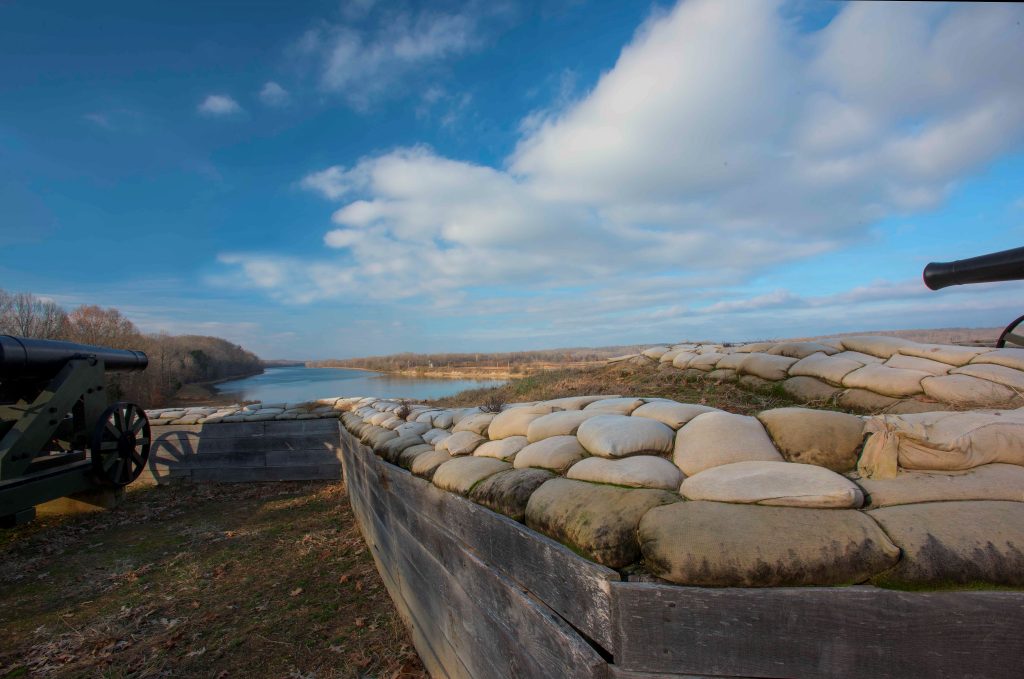A Thousand Words a Battle: Fort Donelson
Battle of Fort Donelson
February 15, 1862

Ulysses S. Grant’s army surrounded Fort Donelson on February 12, 1862. Grant and his men expected the fort to fall to a naval bombardment, much as Fort Henry did only days before. Andrew Foote’s flotilla, though, was defeated on February 14. The next day, Grant met with Foote, and then returned to find his right flank had been turned.
The Confederates were trying to escape and had managed to open a route. Yet, their commanders were confused. Generals John Floyd, Gideon J. Pillow, and Simon Buckner were unsure what to do next. In that lull, Grant rode along the lines.
I saw the men standing in knots talking in the most excited manner. No officer seemed to be giving any directions. The soldiers had their muskets, but no ammunition, while there were tons of it close at hand. I heard some of the men say that the enemy had come out with knapsacks, and haversacks filled with rations. They seemed to think this indicated a determination on his part to stay out and fight just as long as the provisions held out.
I turned to Colonel J. D. Webster, of my staff, who was with me, and said: “Some of our men are pretty badly demoralized, but the enemy must be more so, for he has attempted to force his way out, but has fallen back: the one who attacks first now will be victorious and the enemy will have to be in a hurry if he gets ahead of me.” I determined to make the assault at once on our left.
It was clear to my mind that the enemy had started to march out with his entire force, except a few pickets, and if our attack could be made on the left before the enemy could redistribute his forces along the line, we would find but little opposition except from the intervening abatis. I directed Colonel Webster to ride with me and call out to the men as we passed: “Fill your cartridge-boxes, quick, and get into line; the enemy is trying to escape and he must not be permitted to do so.” This acted like a charm. The men only wanted someone to give them a command.
We rode rapidly to Smith’s quarters, when I explained the situation to him and directed him to charge the enemy’s works in his front with his whole division, saying at the same time that he would find nothing but a very thin line to contend with. The general was off in an incredibly short time, going in advance himself to keep his men from firing while they were working their way through the abatis intervening between them and the enemy. The outer line of rifle-pits was passed, and the night of the 15th General Smith, with much of his division, bivouacked within the lines of the enemy. There was now no doubt but that the Confederates must surrender or be captured the next day.[1]
Grant’s men attacked and succeeded on both the right and left flanks. Buckner, deserted by Floyd and Pillow, decided it was best to surrender, and submitted on February 16, netting the Union over 12,000 prisoners and control of the Cumberland River. Meanwhile, Floyd, Pillow, and more than 1,000 men escaped. Another group withdrew led by then-unknown Nathan Bedford Forrest, who snarled, “I did not come here to surrender my command.”[2]
The fall of Fort Donelson, combined with the victories at Mill Springs and Fort Henry, breached the Confederacy’s western defenses. The North had a new cast of heroes who were lionized in the press. Among them were Lewis “Lew” Wallace, John McClernand, Charles F. Smith, and most of all, Ulysses S. Grant.
— Sean Michael Chick
[1] Ulysses S. Grant, Personal Memoirs of U.S. Grant, Vol. I. (New York: De. Vinne, 1885), 252-253.
[2] Fort Donelson National Battlefield, Rice House Marker
Breached, not breeched. Breach is to break the line, breech is to give birth.
General Smith, noted here, was Gen. C.F. Smith, an old school regular who died from a random accident soon after this. A real loss I loved his quote that an army and each officer must prepare for battle everyday of their careers.
I do recommend the book Teacher of Civil War Generals: Major General Charles Ferguson Smith, Soldier and West Point Commandant. It is very well researched and a decent read that explains why Smith found himself subordinate to Grant. In short it was politics. But if not for that accident, Smith would have replaced Grant after Shiloh.